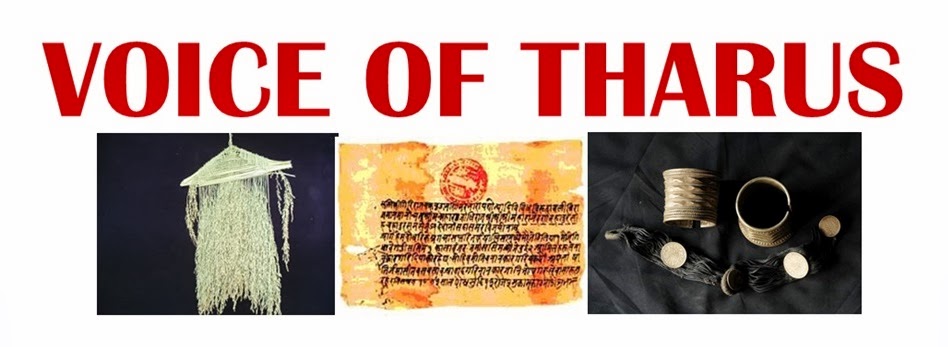 |
| A Tharu house and ducks. Image by Flickr user Jean-François Gornet.CC BY-SA 2.0 |
If you have visited a rural Tharu household, you must have noticed different shaped enclosures for domesticated birds and animals.
Also read: Unique enclosures for domestic birds designed by Tharus
Although, with the passage of time, the tradition of keeping domesticated birds and animals is being discontinued, pigeons, chickens, ducks, goats and pigs still are an essential part of a Tharu household.
But have you ever wondered why Tharus and other households in the Terai keep these birds and animals?
Let me take you to my ancestral house to analyse this.
I come from a strict vegetarian family. My grandparents and parents – all are vegetarians – and they were taught to be a vegetarian right from their birth. Now you can imagine the situation. Neither meat nor fish is allowed inside my house. And for a voracious eater like me, I need to either get to my neighbour’s for a plate of meat or build a make-shift oven out of three bricks and cook the delicacy in the cow-shed. That too in this modern day!
Now you will say why I am not changing all this. I have already started the change at my residence but I have never thought of changing the tradition at my ancestral home. It still, to me, is a sacred place.
The reason I am beating around the bush is to provide you with the context before I delve into what the title of the blog says.
In spite of being a strict vegetarian, my grandmother used to keep pigeons and goats. And my grandfather would always complain about this during the meals. He was finicky about cleanliness and he would always point to the droppings of pigeons and goats, making my grandmother run around with broom all the time and shoo away the pigeons while he would be eating.
My grandmother is a lady who likes to see her surrounding clean all the time. That’s why she didn’t raise chickens and ducks. The pigeons and goats are considered to be clean ones.
We would never give a damn about her pigeons and goats but every year when I visited her there would be plenty of little pigeons to eat. Now don’t tell me not to eat pigeons, I have already left eating them. However, if you are a meat-eater, it’s tasty and really good for health.
Then, every time, we would sacrifice them to appease our forefathers and the village deity. We have discontinued this tradition as well. We have replaced the sacrificial rites with offering laddus to the deities.
Sometimes, my grandmother would sell the newly-born pigeon chicks to meet the daily household expenditures.
And it brought me to tears when my grandmother took out a pair of gold ear-rings and a tilhari (an amulet like ornament worn by married women) for my would-be wife. She had saved the money by selling the goats!
Now, let me go to the psychology behind rearing all these.
First and foremost, they are good source of protein. They can be culled anytime. No wonder, if you visit a Tharu household, you will be offered the fresh meat of these birds.
Secondly, they are can be treated as petty cash. You can sell them whenever you are in need of money.
Thirdly, you can feed them the leftovers from your daily meals. In a way they help minimise your food wastage.
Finally, the goat and bird droppings can be used as an organic fertiliser.
So, why not continue the tradition being followed in the Tharu villages? Let’s continue it!

No comments:
Post a Comment